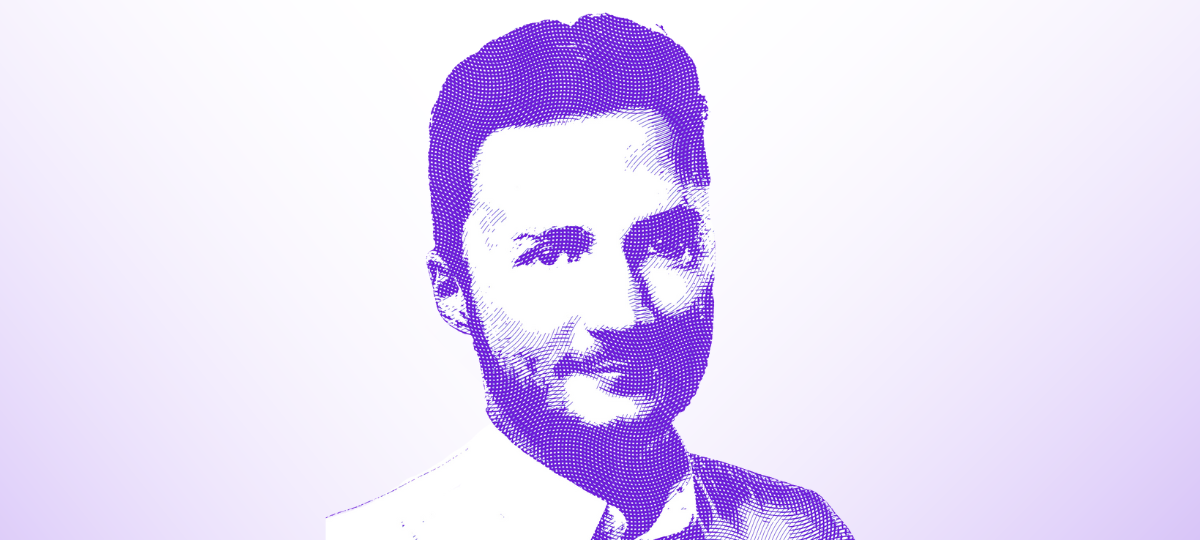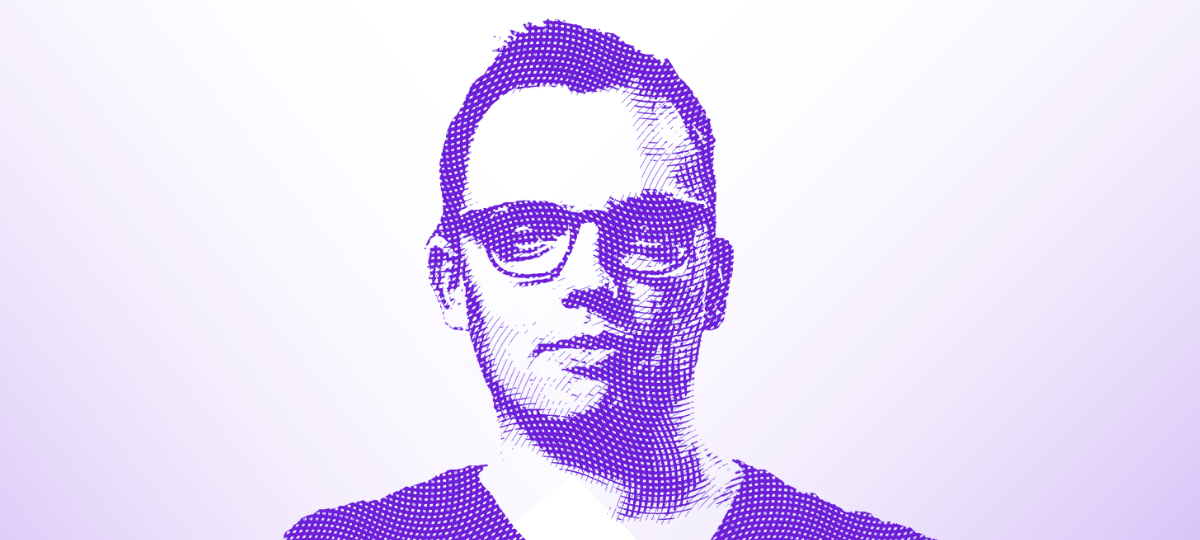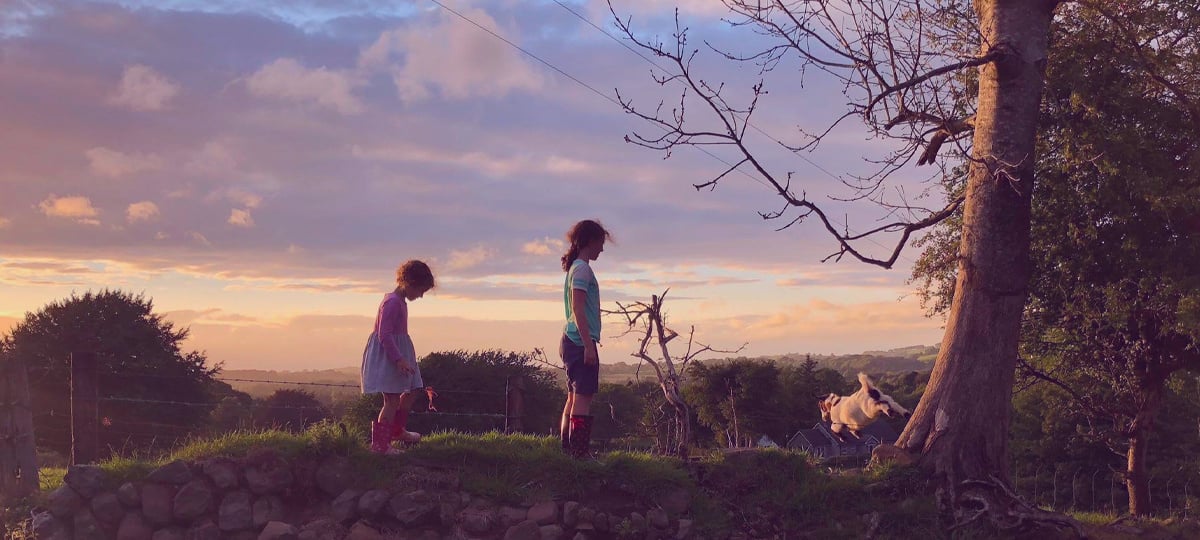Wojtek Zajac on What It Means to Be an Existential Migrant
By: Thomas De Moor
November 21, 2019 7 min read

Wojtek Zajac joined X-Team as one of its first developers in 2006. He's one of X-Team's Lead Front-End Engineers, a job that he combines with uninterrupted travel. Read on to find out more about his traveling life.
Tell me a bit more about your journey to becoming a developer.
I’m self-taught. I learned HTML/CSS before I was thirteen years old and before I even had Internet at home. I had an old PC and, every month, my parents would buy me this computer magazine with CDs that contained offline websites. I discovered that you can read these websites' source code in Notepad, and I reverse-engineered them to create my own sites from scratch. That was 2000-2003. Since then, I spent nearly all my time creating websites about anything and everything.
Technically, I did eventually graduate from an HCI course at a university (in 2014). But I was already setting up X-Team’s office in Krakow back then (which has been rebranded to Xfive.co). The biggest value I got out of university was the network and the people I eventually hired to the office.
And how long have you been a digital nomad? How many countries have you visited?
I started working remotely as a freelance web developer in 2004. But it wasn’t until 2010 that I started traveling much more frequently. Eventually, in 2015, I sold some of my big possessions, packed everything I had into a suitcase, and started traveling full-time. Leaving without any big liabilities felt very liberating. Over the past ten years, I’ve been to more than 50 countries (excluding airport layovers), spending between a week to a few months in the majority of them.


Leaving your home country behind is a big step. What made you decide you wanted to be a digital nomad?
Two things. I was born in a small town in a former communist country and I discovered my passion very early on: programming. I felt a huge dissonance between my local environment and my personal goals. When I was sixteen, I'd already published a bio with a note saying that I wanted to emigrate. Eventually, I learned that people who feel this way are called existential migrants.
Existential migrants?
Let me explain. In the past, some people moved abroad because they were forced to. They moved abroad for economic or political reasons. Others would move because of wanderlust: a strong desire to travel and see new places.
Existential migration is very different. It's the unstoppable feeling that, in order to develop your capabilities and continue your personal growth, you need to fight stagnation and continuously make conscious choices about what you do and where you are.
To quote Greg Madison from his book The End of Belonging:
For some voluntary migrants, the call to realize one’s potential overrides most other considerations, including the need to belong. In this sense, leaving home can be a ‘self-protective’ choice. Moving to a foreign place fosters flexibility to develop oneself according to an ‘inner call’, something that probably was not encouraged in the home environment.
Existential migrants avoid conformity with the conventional and will never feel fulfilled until they know that their life is entirely self-directed. Not all digital nomads exhibit this characteristic: most nomads escape from a typical 9-5 life and are less purposeful in their travels.
Reading Greg’s book was a big “Aha!” moment for me, as it helped me better understand who I am – in the end, this is how I always felt, and now at least I know that it’s not anything too uncommon. If you can relate, I highly recommend reading Greg Madison's book 😀.
I have the feeling that a few X-Teamers might be existential migrants. What do you wish you'd have known before you started traveling the world?
I wish I'd realized earlier that it’s not the places you go to, it’s the people you meet. Also, I wish I'd started journaling earlier. It’s a great tool for self-reflection.


Of all the places you visited, if you had to choose, where would you settle and why?
Short-term, I would prioritize places with vibrant communities of like-minded people. If you go to Chiang Mai, Canggu, or Berlin, you will find amazing people to network with and learn from any time of the year. I believe that surrounding yourself with such people is the best investment you can make.
Long-term, I would take into account other factors that are important for my lifestyle, such as nature, warm weather for the whole year, etc... I have a few favorite places around Southeast Asia and Latin America that check all these marks, such as Costa Rica or Thailand.
And what was the country that surprised you the most? A country that defied expectations?
I purposely try to remove all expectations from my life. This applies not only to places, but to people as well. Instead, I practice gratitude. If you do this, you’ll be surprised how much better you'll feel.
For example, I romanticized Japan for years. Even though I had a few opportunities to visit the country in the past, I kept postponing it, as if it was some kind of Holy Grail to me.
In the end, I spent over 3 weeks there. I loved every bit of it! But… as I was flying out, it left me feeling empty. I had to come up with a new Holy Grail. Can you imagine? Sometimes, dreaming about a goal is as much fun as reaching it 😄. And travel isn't a competition. You have your whole life to travel. There's no need to do try and do everything as quickly as possible.
On the other hand, I recall one time when, after spending over a month in Thailand, I had to do a visa run. I randomly bought tickets to Myanmar and decided to spend a few days there by myself. I'll never forget the authenticity of the people I met. It felt surreal visiting remote Buddhist temples on mountains, surrounded only by monks. I almost cried sitting next to ten children monks who were chanting as the sun was rising. An unforgettable experience. This was only possible because I had no expectations. I could simply be grateful at what fortune threw at me.
I love that! Practicing gratitude is so important for mental health. Let's talk about what's probably the #1 reason why people don't travel. They think it's too expensive. What would you say to them?
Obviously it depends on where you go. But a lot of people actually save money traveling, because they visit or live in cheap countries on western salaries. It’s also useful, prior to leaving, to look at websites such as Numbeo, so you have an idea of the biggest costs. If your spending is getting out of hand, start budgeting. You can save a lot by staying in places long-term (or otherwise by negotiating your daily rates) and by eating at home. It’ll be healthier, too.

What are the biggest pros and the biggest cons of the freelance, digital nomad lifestyle?
Too many pros to list! As a remote worker, the biggest pro is the freedom of choice. Some people prefer to keep living where they are, others move to the countryside so they don't have to worry about a commute, while others still decide to start traveling. Remote work allows them to make that choice.
Cons – the paradox of choice, which often leads to commitment issues. Thankfully, as the world increasingly embraces the sharing economy, it’s becoming much easier to live with very little, which allows for more freedom. It's also better for the planet, as we use cars and homes more efficiently.
All in all, though, I think that the digital nomad lifestyle is a win-win for everyone. The workforce gets more evenly spread out around different areas, which helps local communities thrive, instead of capital being entirely concentrated in big cities.
Because of the Internet, employers also have better access to talent worldwide. Everyone can choose to live wherever they’re best treated – effectively leading to countries competing with one other to attract remote workers, by giving them the biggest amount of incentives. This is already happening and I'm here for it 😀!
What future destinations are you looking forward to?
As remote destinations and the feeling of uncanniness start becoming natural, it’s easy to feel increasingly foreign in your home country. I look forward to finding a place that I'll be able to call home, but I haven’t decided yet.
Finally, I know that you're writing a book. Tell us about it! What will it be about and why did you decide to write it?
I'm incredibly grateful that I can lead a location-independent lifestyle while being fulfilled at work. I came from a small town in Poland, I'm entirely self-taught, and I've been living in places like the US, Hong Kong, Thailand, Spain, and many others, while still being in my twenties. This wouldn't have been possible if I hadn't started working remotely fifteen years ago.
Considering that sharing my knowledge and making an impact on other people brings me joy, my personal mission is to spread the word about the digital nomad lifestyle. I want to empower more people to become digital nomads. So I'd like to share everything I learned and help people get started, help them navigate the digital nomad lifestyle. That's what the book will be about. If you’re interested, sign up for updates about the book!
That sounds wonderful. I'm sure the book will be inspiring to a good many people. Thank you for the interview Wojtek. Best of luck on your travels!
TABLE OF CONTENTS



